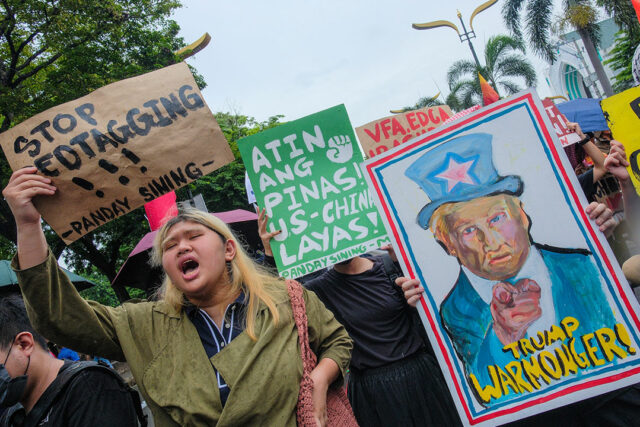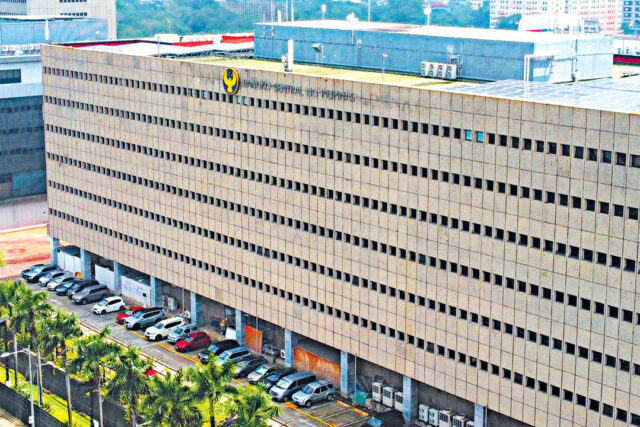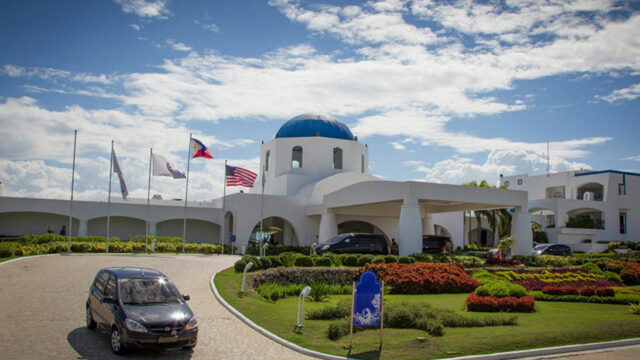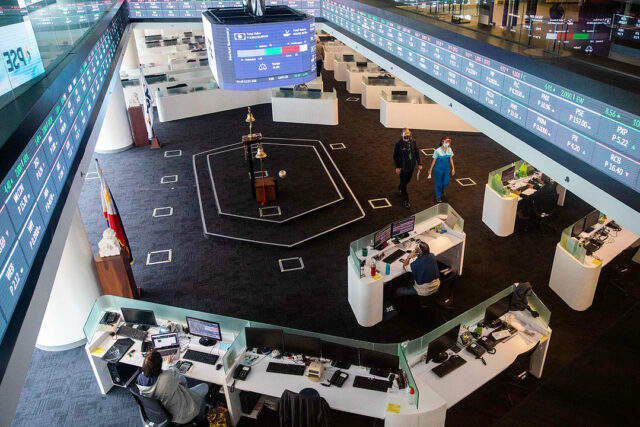Forward to the past: Zombie forms
(Second of two parts)
Part 1 described the hard Right, in its many appearances in different countries today, as populist backward projection. This Right longs for the past. Its nostalgia is steeped in an old, imperial, white supremacism.
So much grievance. Power was wrested — unfairly, they think — by hordes of colored people taking up white space for domination; notably, in Europe’s version as fear of being overwhelmed by migrants. And although a slightly different story, Britain’s Brexit also pivoted on anxiety over new waves of desperate foreigners, mostly non-white.
US President Donald Trump’s version also idealizes return to an economic order built on manufacturing, which is to say, a 19th Century Industrial Revolution idea. An idea whose time is gone. As gone, supposedly, as racism. Which, as it turns out, is by no means in the dustbin of history. Yet.
The Trumpian coup d’etat against democracy takes energy from a racism palpable, as well, in the turns-to-the-Right in Italy, Finland, Slovakia, Hungary, Croatia, and the Czech Republic. Racism is less discernible in Erdoğan’s Turkey and Modi’s India in their respective turns to conservative Islam and conservative Hinduism. But the democracy-corrosive bias deserves scrutiny.
Fundamentalism is by definition uncongenial to diversity — the obvious example being the racist and fundamentalist Southern Baptist Christians (“Born Again”) denominations in the US, that are the backbone of MAGA. These folks inherit a history of upholding slavery as divine fiat.
While the Philippines’ swing to President Rodrigo Duterte’s version of a hard Right does not seem powered by race-bound suprematicism, its anti-poor thrust barely hides the racial shadow of class politics in this country. And now, Ferdinand Marcos, Jr.’s rewriting of his father’s dictatorship as a golden age, a mestizaje wonderworld, vintage Imelda, the fair-skinned embodiment of autocracy.
In any case, the point has been made (notably by Maria Ressa on US television) that what’s happening in Trump’s US has already happened in the Philippines, the latter ahead by just a few months.
The erosion of democracy can happen quickly — this is the cautionary tale from the Philippines. Contests for truth are won by untruths endlessly repeated. Democracy is to the left of the hard Right, and worthy ideas such as human equality, human rights, and meritocracy erode with shocking abruptness.
That speed, that abruptness, is fueled by hardy constellations of ideas thought dead and gone. Indeed these ideas are undead and resurrect, zombie-like, and seemingly similar everywhere.
DIFFERENCES INSIDE SIMILARITIES
So, yes, the similarities are self-evident. On the other hand, the differences are more obscure and need unearthing tracking. Even the two Philippine presidents who swung so far right the experiences constituted national traumas, were vastly different.
Marcosian governance was ideological, embedded in the 1960s Cold War universal dualism. The Duterte years also resurrected a 1960s past. But rather than aligned along a cosmopolitan East/West divide, Duterte’s trajectory was a throwback to the souped-up warlordism of the mid-20th Century Mindanao; and even further back in time, to violent datu-hood.
Marcosian governance made internal sense within a mindset that assumed the prior right of the power center to “raw materials” in areas designated as marginal, and the use of armed force to prosecute this extractive economy. It reproduced the colonial presumption of previous centuries.
Dutertean governance made internal sense within the cultural history of a Mindanao that, in the mid-20th Century, experienced systematic terror campaigns — including massacres, macabre murders, and some cannibalism — as methodology for social order. It reproduced, if partially, the animistic cults of many centuries in rural and highland Philippines.
It is ironic that the word “right” was used for such horrific wrong.
Irony is a good handle for a second set of differences that might offer insight into global affairs. At least for Filipinos. These are the differences between and among various politics of grievance.
In the study after study, it is grievance that feeds cognitive decline everywhere and grinds down shared reality.
It does in fact work ironically. Data and analyses that in the democratizing latter half of the 20th Century were shared across class, gender, location, culture, and ideology so that a common destiny can be charted in peace — call it truth — are precisely what’s bludgeoned by systematic, anti-democratic campaigns. Supposedly in the interest of common destiny within a new, “disciplined” social order. Say, Dutertean peace.
Reassembled, also with grievance as glue, the bits and pieces come together as Frankensteinian forms of typically autocratic but democratic; typically, to reiterate, mutations of socio-economic and cultural ideas of previous centuries. Trump, for instance, wants desperately to lead a monarchy in a super-economy with an Industrial Revolution-era economic base.
It is instructive to therefore look into grievance, because it can’t possibly be the same all over the world.
GRIEVANCE IS PLURAL
White MAGA hordes resent the eclipse of their vintage prewar America caste system. Their revolutionary models are Hitler and Mussolini. Filipino grievance — whether of Marcos loyalists, Duterte diehards, Quiboloy adherents, El Shaddai faithful — concerns never having had a chance at wealth creation.
A fate-driven Filipino concept of lot-in-life, held by millions, means that only god-like leaders are viable instruments of salvation on earth. Their past — the mythical, quasi-divine aspects of Marcos, Duterte, populist religious leaders, and even major healers who, in the past, led dramatic rebellions against Spanish colonization.
Currently, there does not seem to be a similar myth-shrouded, far Right leader anywhere else. Not the same kind of tribal mythic operations. But, about the European Union, an analyst writes: “Our politics is no longer a battle between left and right. It is a battle between myths, and our institutions are the battleground. On one side, those who believe that the institutions of liberal democracy can meet the chaos of the times. On the other, people who see these same institutions as the cause of our fragmentation.”
And then there is grievance still oozing from festering historical injustice. The Muslim liberation fronts and myriad lost commands that fought wars of seccession from the Philippine Republic through the last 50 years, made recognition of grievance an overt and non-negotiable political project, fought for through war.
For an analogous situation, the current Palestinian experience of horror is close — except for the unspeakably huge scale of the current genocide in Gaza.
The continuing fidelity of a remarkable number of Filipino Muslims to President Duterte, beyond the fact of his incarceration by the International Criminal Court, partially accounts for the tenacity of the Philippines’ swing to the rabid right.
The continuing fidelity of a remarkable number of Americans to President Trump, beyond his cognitive decline, corruption, and idiocy, partially accounts for the tenacity of white supremacy beyond very real possibilities of democratic restoration, soon in the US.
Untangling differences and similarities is maddening. But figuring out the double whammy of far-Right politics and the back-to-the past imaginaries at a time when this is happening everywhere is urgent. Because — with the world careening into crypto economies building up from scraping and processing information — dragging 19th and 20th Century worldviews into problem solving and institution building today, could very be a literal zombie apocalypse.
Marian Pastor Roces is an independent curator and critic of institutions. Her body of work addresses the intersection of culture and politics.















